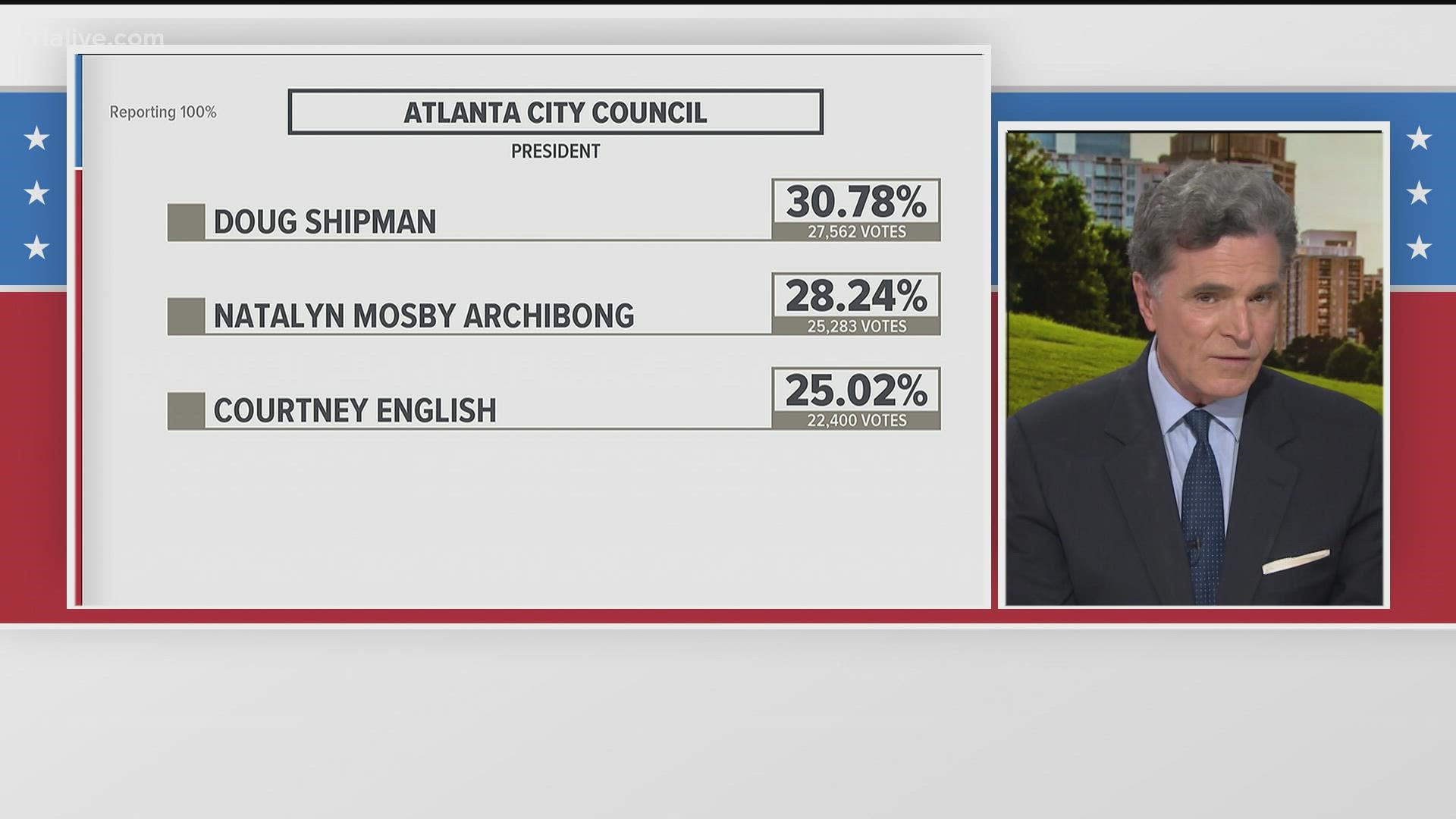ATLANTA — Election season is upon us as early voting for the May primaries commences.
Some Georgia races are expected to be close calls, and they have the potential to warrant a runoff -- not to be mistaken for a recount.
So, what exactly is a runoff and how is it different from a recount?
Runoff elections are held when no candidate wins the required majority of votes. In a runoff election, voters are asked to turn out to the polls again to cast their ballot for their preferred candidate after the primary or general election date.
In the Peach State, the leading candidate must clear the 50% + 1 vote threshold to avoid a runoff. It basically means the candidate has to have more than half the votes to win outright.
Runoff elections are mandatory in Georgia if a candidate doesn't win the majority of the vote. Only the top two finishers in the primary or general election advance to the runoff.
Any race, whether a citywide one such as for City Council president or at-large City Council and Board of Education posts, or district races for the council and education board, could require a runoff.
Georgia’s runoff elections are a vestige of Jim Crow era politics – when lawmakers created a system that ensured elections could narrow down pluralities to ensure a majority could elect white candidates.
A runoff is completely different from a recount, which is literally a recount of votes that have already been cast. While runoff elections are required, Georgia state law indicates an automatic recount of votes is not. A recount must be requested.
Because of House Bill 316, which was signed into law in 2019, a candidate can request a recount of votes if the margin of election results is less than or equal to 0.5%.
The candidate can only make that recount request within two days of election result certification.
Election officials and the Secretary of State can also ask for a recount.
An election official can ask for a recount if there is a suspected error or discrepancy in the returns. If a candidate for federal or state office petitions the Secretary of State regarding a suspected error or discrepancy, the Secretary of State can ask for a recount.

